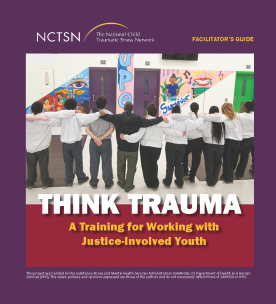
Think Trauma: A Training for Working with Justice Involved Youth, 2nd Edition
Provides an overview for juvenile justice staff on how to work towards creating a trauma-informed juvenile justice residential setting.
The following resources on Justice were developed by the NCTSN.

Provides an overview for juvenile justice staff on how to work towards creating a trauma-informed juvenile justice residential setting.

Offers information regarding child sex trafficking to juvenille justice professionals.
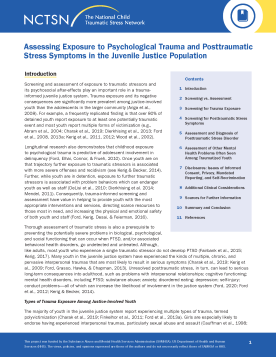
Explores the importance, clinical considerations, and approaches to assess for psychological trauma and posttraumatic stress in youth in the juvenile justice population. This fact sheet addresses challenges that are unique to assessment within the juvenile justice environment.
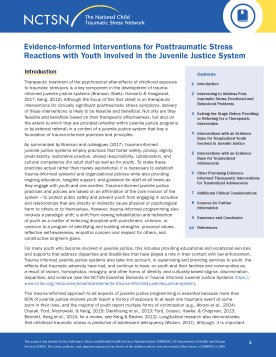
Describes evidence-informed interventions for youth involved in the juvenile justice system.
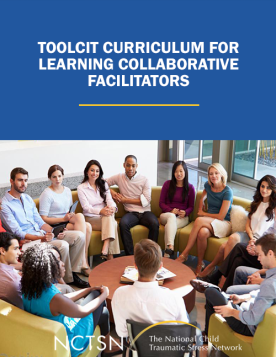
Supports NCTSN sites as they implement, spread, and sustain evidence-based treatments, practices, interventions, and system changes to organizations that serve children and families who have experienced trauma.
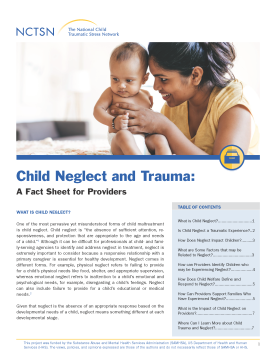
Offers child-serving providers information about child neglect and trauma.
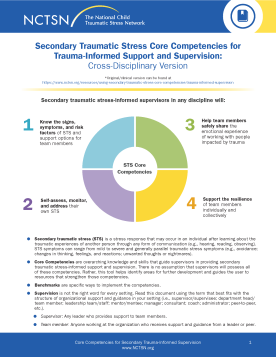
Identifies the core competencies that STS-informed supervisors in any discipline should have. This fact sheet defines terms, outlines benchmarks for each competency, and offers supervisors guidance on ways...

Is a companion document to the Secondary Traumatic Stress Core Competencies for Trauma-Informed Support and Supervision: Cross-Disciplinary Version offers further explanation, examples...
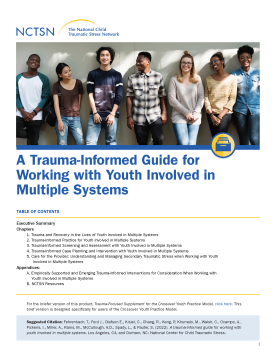
Offers guidance to help those working with youth involved in multiple systems (YIMS) and their families to use a traumatic stress perspective and provide trauma-informed care.
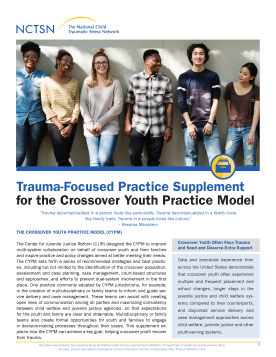
Is designed for those working with youth involved in multiple systems using the Crossover Youth Practice Model. This supplement is a brief version of A Trauma-Informed Guide for Working with Youth Involved in Multiple Systems developed specifically for staff...
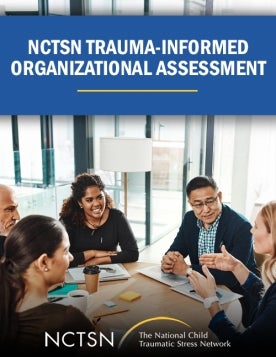
Helps organizations assess their current practices in the context of serving children and families who have experienced trauma. It is an important part of an organizational transformation process to create trauma-informed organizations.
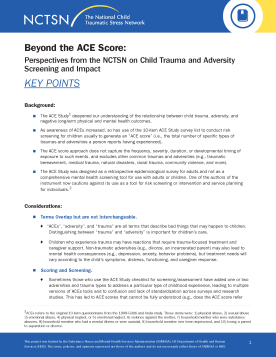
Highlights key points for providers, family advocates, and policymakers to understand about Adverse Childhood Experiences (ACEs) and child trauma. This resource was adapted from...